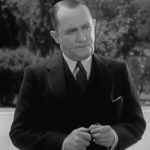 |
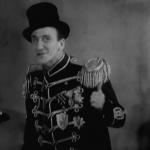 |
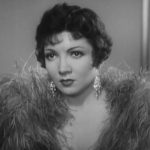 |
| T.K. Blair / Doc Varney George M. Cohan |
Curly Cooney Jimmy Durante |
Felicia Hammond Claudette Colbert |
| Released by Paramount | Directed by Norman Taurog Run time: 78 minutes |
||
Proof That It’s a Pre-Code Film
- Cohan puts on blackface for a number. Yay.
- Sidney Toler puts on yellow face once more.
- Durante taunts George Barbier’s political kingmaker for being, “A sunflower! Swish, sister, swish!”
- “Ah, yes, we have too many jackasses in the government now!”
The Phantom President: Electoral Disaster
“A little a chivalry is all right, but a little Chevalier wouldn’t hurt.”
This election is almost over. I know that line is probably out of place a week from now when it’s dead and gone, but 2016 has been a slog of awfulness, and I’m not entirely sure the actual event of the election will settle it. I want this year to be over. Adding to my troubles is that I watched this pile of shit and now I have to write about it.
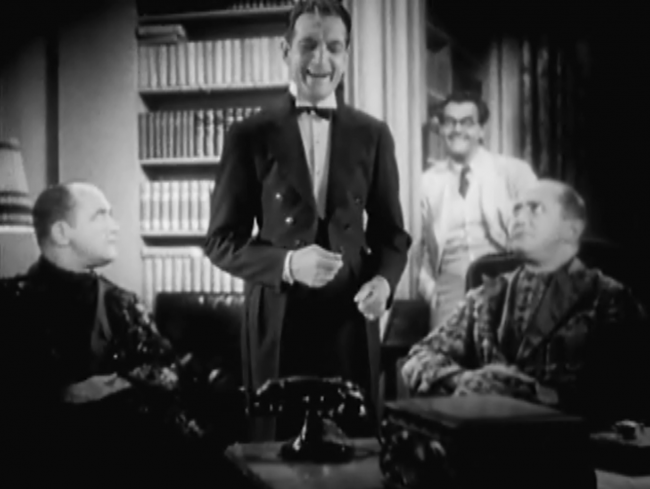
The rear projection and split screens used to make two Cohans appear works sometimes. Other times, it definitely doesn’t.
T.K. Blair is an uptight jerk who wants to run for the Oval Office, but has a personality problem– he hasn’t got one. He can’t even get lovely former President’s daughter, Felicia, to stop washing her dog for long enough to properly propose. In comes medicine man Doc Varny, a lively soul who sells garbage to yokels and knows how to work the crowd. The cabal behind Blair sees the perfect solution– Varny does the campaigning, and Blair does the job after the election is over. What could go wrong?
It’s a partial musical with randomly rhyming dialogue and a few full blown numbers. There’s one where stock footage of birds and bees serenade a pair of lovers (seriously). Another sees a political convention turn into a complete hoedown, including the Arizona delegation dressed as cowboys and the West Virginians as coal miners among others. And, of course, we have Cohan belting out a tune in blackface, because it worked for Jolson, why not give it another go.
The subtext of the film is socially conservative to a fault. The group backing Blair is a cadre of stereotypes. Those nasty butch women, gays, and foreigners are conspiring to put a humorless know-nothing banker to the presidency. A banker! The only solution the film sees is by ways of a conman who understands the real America. Back then this involved playing baseball with kids, singing songs about patriotism and doing a quick two step– it’s not quite name calling on Twitter, but thank god for technology. When the conman blows the lid on the charade, he’s elected anyway– at least he’s an honest conman, amirite? An honest conman with no plans, no ability, and no clue. Wonderful.
Jimmy Durante (or, as I usually think of Durante, “goddammit, it’s HIM again”) is at peak Durante here, tossing of malaprops and hurling the kitchen sink at the screen as he plays the Doc’s ‘wacky’ partner. At least in his many teamings with Buster Keaton, at least you felt bad for Keaton. That supplanted some of the rage and disappointment. Here Cohan lays on the smarm as well, either not believing in the material or knowing he’s too good for it, leaving a screen presence of irritation at the audience to supplement perfectly Durante’s empty-headed desperation.
Claudette Colbert is given material to work with that I’d hesitate to call her worst, but I cant think of much that’s worth recommending for anyone in the entire film beyond a few of her gowns. People who know and love Yankee Doodle Dandy, the James Cagney ode to patriotism from 1942 that’s loosely (loosely) based on Cohan, may want to see what the real Broadway virtuoso looks and sounds like. Their fertile imaginations would be undeniably more satisfying.
The film is utterly repulsive on almost every single level. It’s simpering, humorless dreck.
Gallery
Click to enlarge. All of my images are taken by me– please feel free to reuse with credit!
Trivia & Links
- George M. Cohan’s only sound film, and it sounds like it wasn’t much fun to make. Some more from Musical 101’s Cohan biography:
Cohan could not resist the lure of performing. In 1933, he overlooked his instinctive distrust of Hollywood just long enough to star in his only musical film. The Phantom President (1933) was the story of a small time song and dance man who agrees to campaign in place of a lackluster presidential candidate he bears a twin-like resemblance to. Cohan played both roles, using spilt screen technology in several scenes. Despite a score by Richard Rodgers and Lorenz Hart and the best efforts of co-stars Claudette Colbert and Jimmy Durante, The Phantom President was a weak vehicle, but it offers a precious glimpse of him in action. Although his nasal singing sounds harsh, his dancing was still slick, and we can experience something of the personality and physical grace that made him such an audience favorite.
- Posters and stills over at Doctor Macro.
- Colbert notes at one point to Cohan, “There’s something Jekyll and Hyde-ish about you!” Thought that was cute since this came out a few months after Paramount released the 1931 version of Dr. Jekyll and Mr. Hyde.
- Mordaunt Hall at the New York Times, unsurprisingly, loved it.
Mr. Cohan handles the dual role most competently. He is serious and conservative as Blair and vigorous, witty and sympathetic as Varney. The redoubtable Curly Cooney is baffled by the likeness of the two men; in fact, he believes them to be one and the same. He does his share to win the election for Ronkton’s candidate with his hoarse voice, his enthusiasm and buffoonery. […] And, so far as Mr. Durante is concerned, nobody could help laughing at his doings and sayings as Curly Cooney.
- I just wanted to add– there’s a movie with a similar plot about a presidential double accidentally assuming the job called Dave from 1993. It’s one of my favorite movies (partially because 10-year-old me is an extra in there somewhere!), and I wholeheartedly recommend it. You can watch the trailer for it here.
Awards, Accolades & Availability
- This film is a Paramount production movie from the early 30s, so Universal owns it and you probably won’t be seeing it any time soon on home video.
More Pre-Code to Explore


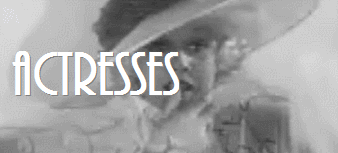
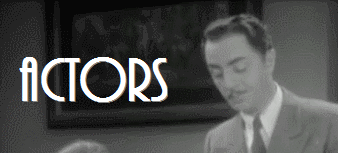
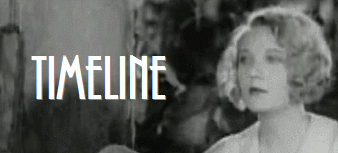
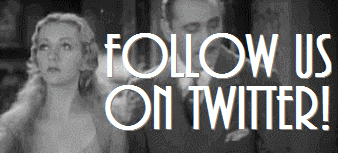


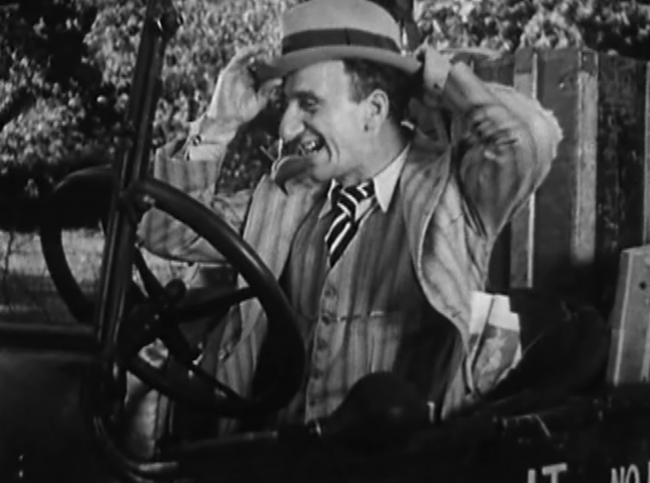
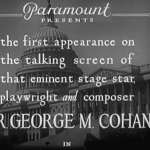
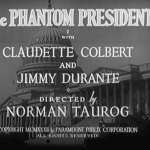
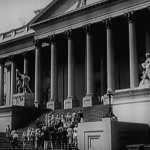

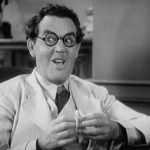

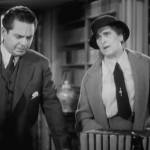
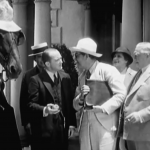

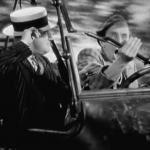
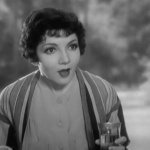
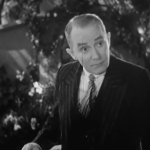
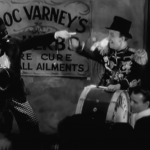
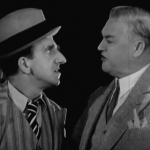
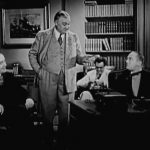
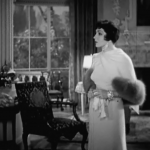
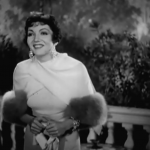
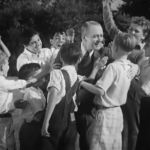
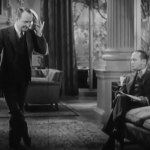
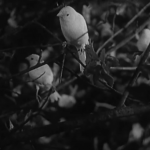
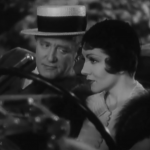
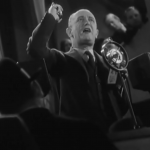
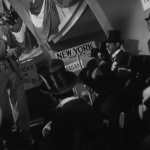
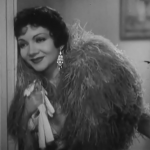
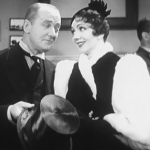
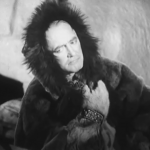
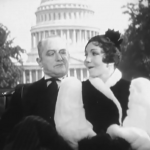
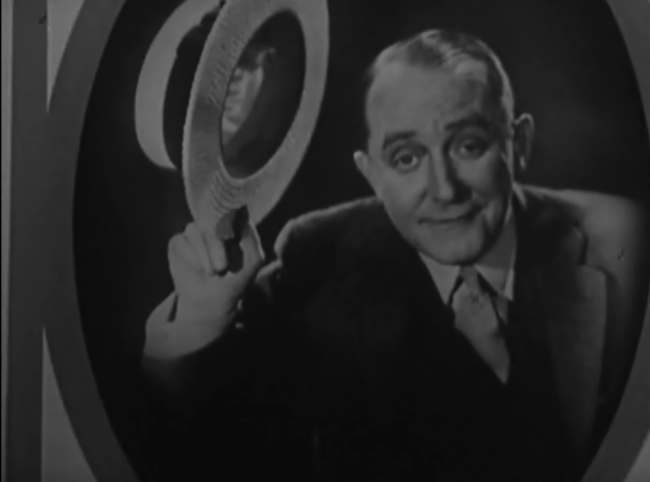
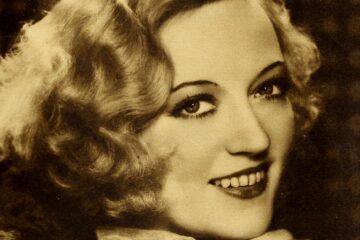
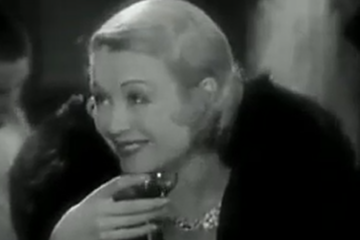

2 Comments
GirlyNebbish · November 7, 2016 at 9:34 am
Well, thanks for taking a bullet for us, your readers. More importantly, thanks for including captions again! They could well be my favorite part of your reviews, and I missed them.
mjm · November 9, 2016 at 3:01 am
Cohan made one more sound film, 1934’s ‘Gambling’ which may or may not be a lost film
Comments are closed.